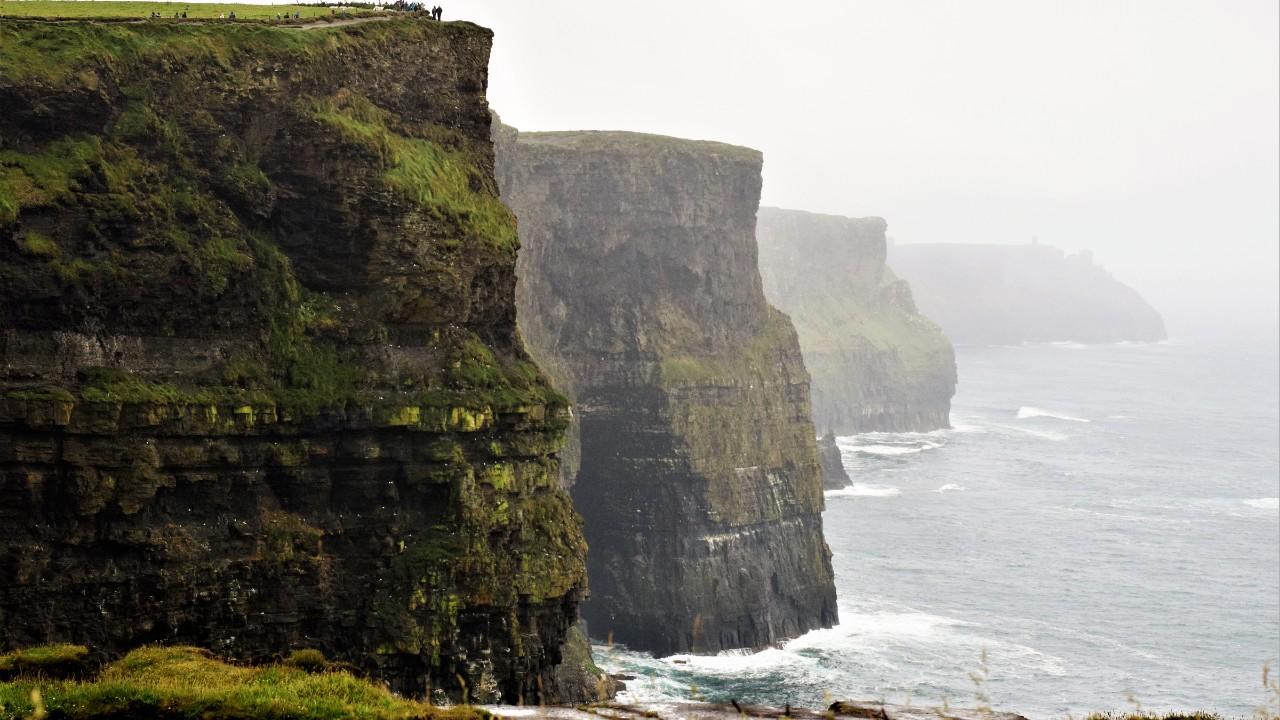The GeoparkLIFE programme took the approach of collaborating with tourism enterprises so they could collectively incorporate sustainable management practices in their tourism operations. There were three pillars to this approach
- Structure: work with the Burren Ecotourism Network
- Standards: work within the framework of the Geopark Code of Practice for Sustainable Tourism.
- Marketing: Build a Destination Marketing Strategy around the ethos of the sustainable tourism activity.
Breakthrough Innovation:
A single unifying Code of Practice that married social, economic and environmental principles and actions.
Initially, a large proportion of time and energy on the project was devoted to supporting businesses achieve eco certification. At the same time, resources came to be concentrated on supporting businesses to better manage waste, water and energy.
However, it became apparent that focusing on these two approaches alone lacked sufficient relevance and meaning to really engage or enthuse businesses. They found it hard to connect standardized actions in certification schemes with their own destination. They also found that mastering waste, water and energy management was not enough to achieve a sustainable destination in the wider sense.
These conclusions led to the creation of a framework template to create localised standards that respected global principles. The result was the Geopark Code of Practice for Sustainable Tourism.
The 6 Guiding Principles (in yellow on the right) are drawn directly from the mission statement of the Geopark, ensuring alignment with overall destination stewardship.
Enterprises adopt The Code in its entirety and must demonstrate a minimum level of defined practice under each principle. 60 defined actions sit behind the principles and commitments you see here.
While these actions are specific to the Geopark, the framework template itself is entirely transferable. Another destination wishing to adopt this model could define the best set of actions that bring the principles to life but are meaningful and relevant for their place.
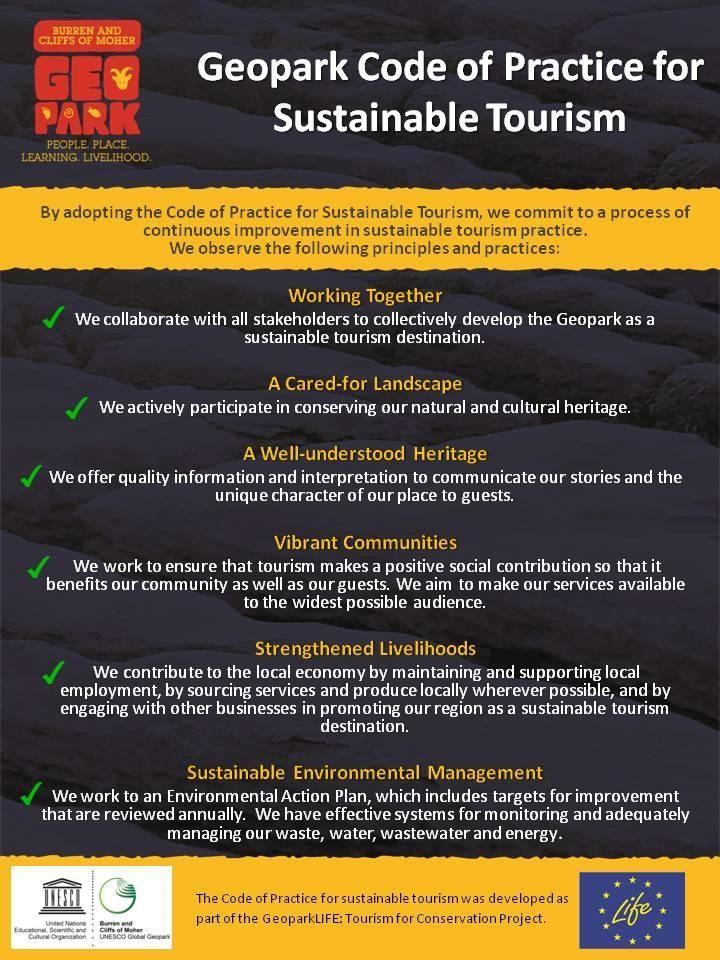
A Balance in Emphasis
The Geopark Code of Practice for Sustainable Tourism married the social, environmental and economic strands into one Code. It created equality of emphasis and avoided an exclusive focus on management of waste, water and energy. It elevated principles such as 'vibrant communities', 'a well-understood heritage' and 'a cared-for landscape' to equal status with 'sustainable environmental management'. It also ensured equality of emphasis to 'strengthened livelihoods' and the economic pillar of sustainability.
The Code communicates that all 6 Principles need attention if a truly sustainable destination is to be achieved.
Over 60 businesses in the Burren & Cliffs of Moher Geopark continue to voluntarily adopt and implement the Geopark Code of Practice, which is subject to independent verification.
The relationship between the 3 pillars of the GeoparkLIFE Programme and the path for tourism enterprises is illustrated here.
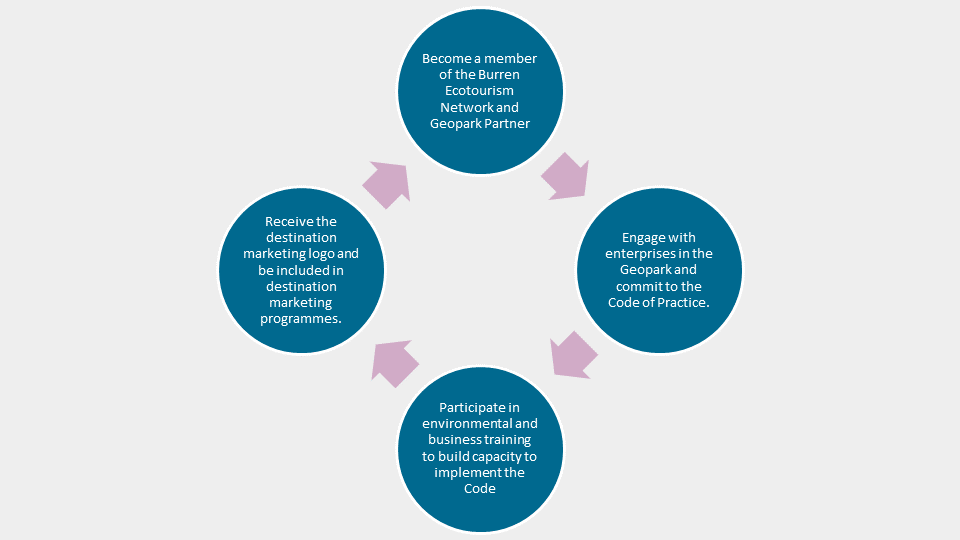
Critical Success Factor : Respecting commercial realities
Tourism enterprises are economic entities. GeoparkLIFE recognized that tourism enterprises who participated in GeoparkLIFE would have to engage voluntarily in a change of business practices and would have to invest considerable reosurces to bring about this change.
From the outset, GeoparkLIFE created and led a strong destination marketing strategy, believing that the destination brand (the Burren & Cliffs of Moher UNESCO Global Geopark) rooted in sustainable practice could be a differentiator in the marketplace.
This provided a critical economic incentive for tourism businesses to invest in sustainable tourism practices.
By taking the sustainable environmental management practices of the enterprises and translating them into a competitive destination brand, it married the environmental and economic dimensions of a sustainable tourism approach.
The Burren Project has been recognized through numerous local, national and international awards, including the National Geopraphic World Legacy Award, The European Destination of Excellence Award and the Lonely Planet Best in Travel for Community Tourism.

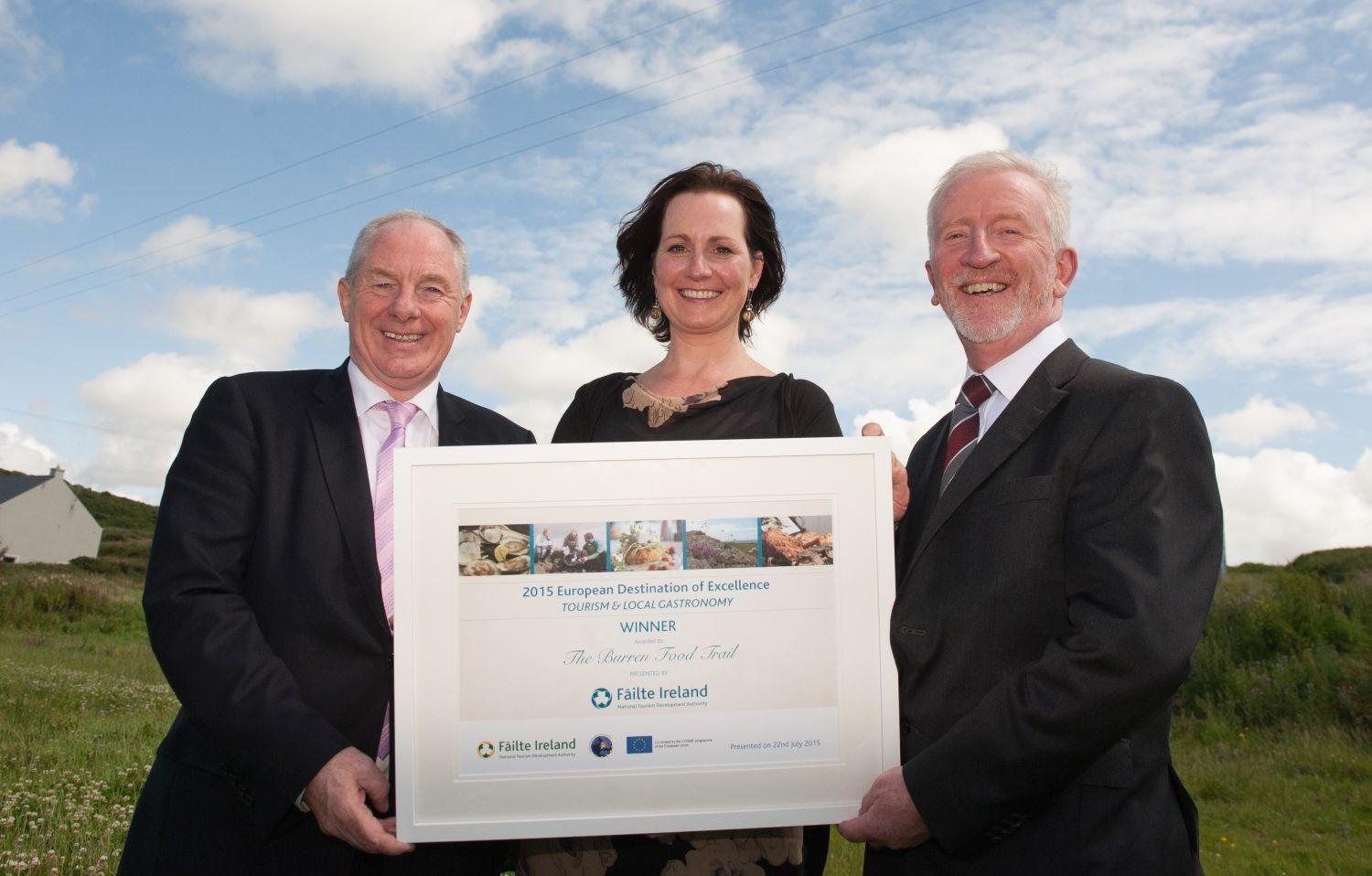
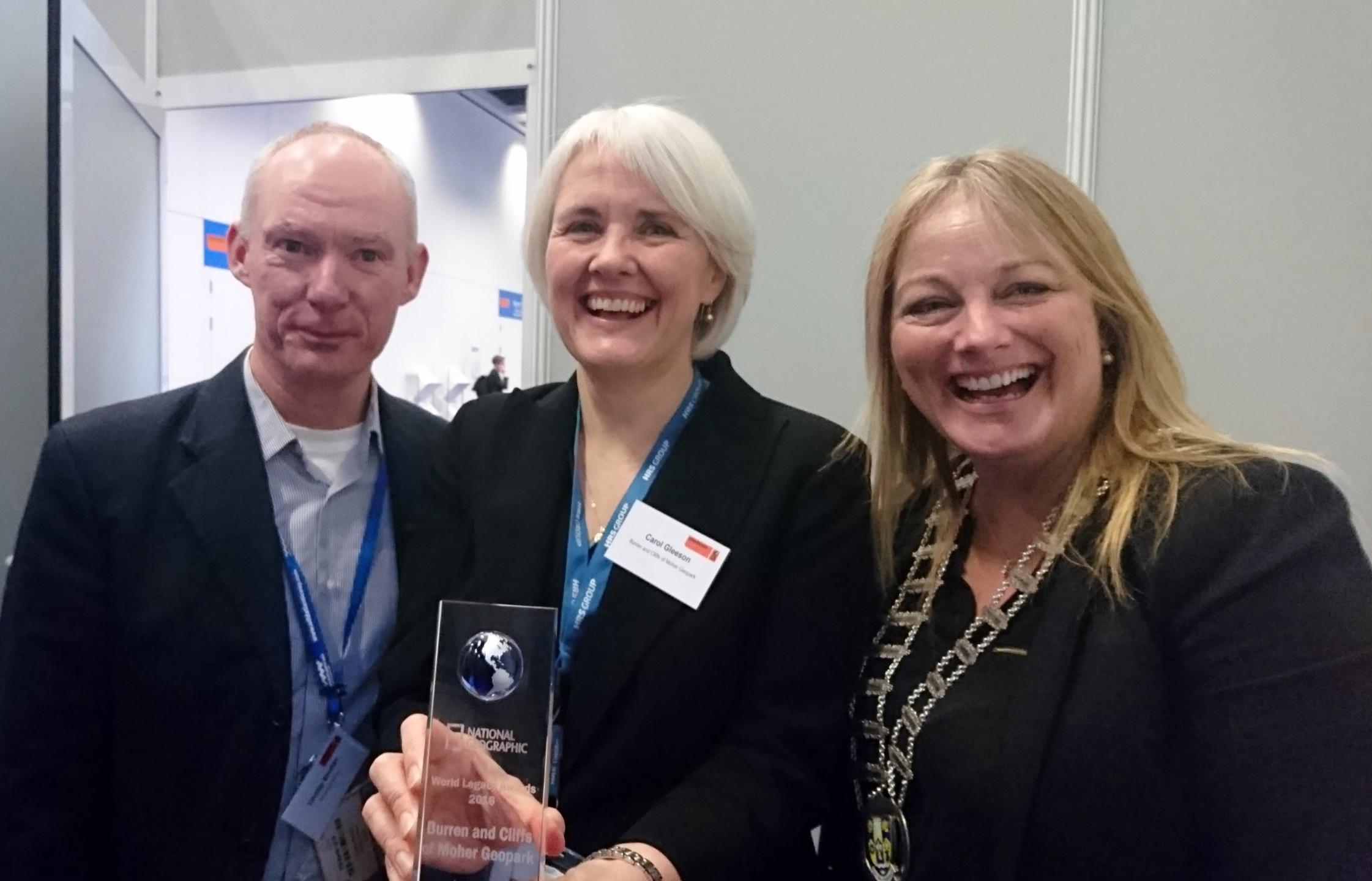

Between 2011 and 2017, Tina held various roles as Sustainable Tourism Animator and Tourism Enterprises Co-ordinator on behalf of the Burren & Cliffs of Moher Geopark and the Burren Ecotourism Network. Having worked as Animator of the Burren Ecotourism Network 2011-2012, Tina went on to lead 'The Engagement of the Tourism Enterprises' strand of the Geopark LIFE Tourism for Conservation programme 2013-2017. She is author of the Good Practice Guide to Tourism Enterprises Engagement that emerged from the programme.
Tina led the concept and development of the Geopark Code of Practice for Sustainable Tourism, including the creation of a comprehensive training and mentoring programme, an online self-assessment and an online programme for businesses to collate and log evidence of adoption of the Code. She co-ordinated over 2000 Training Days for over 100 enterprises in the region during that time.
Click here to visit the GeoparkLIFE Website.
Click on the image on the right to download the Good Practice Guide to Engaging Tourism Enterprises, which was authored by Tina on the completion of this project.
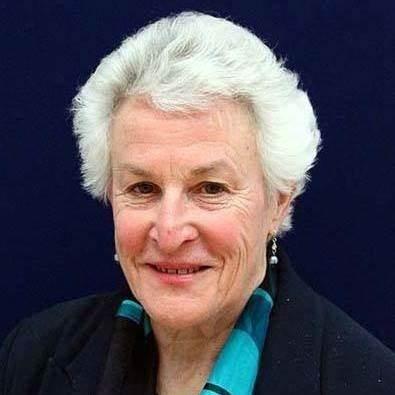
Anna Pollock, Conscious Travel
"In my opinion, this is a first-rate example of community-led regeneration in the tourism domain."
Contact
Email: [email protected]
Privacy
We use cookies to improve your experience, by your continued use of this site you accept such use.
For more view our Privacy Policy
Sign Up To Our Newsletter
Some of our projects have been part-funded by the LEADER program, through the National Development Plan and the European Agricultural Fund for Rural Development.


